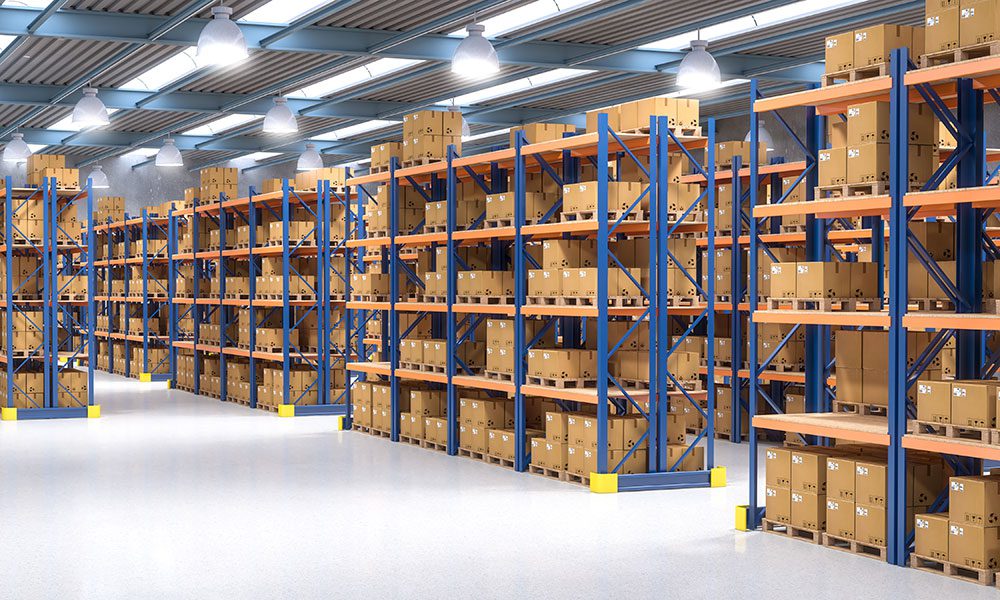Warehouses can experience high risks, including property damage and stock loss to employers and public liability. This insurance policy provides financial coverage against dangers like fire, theft, flood, and accidental damage. Protecting your warehouses and their valuable assets from losses is essential whether you operate a single storage unit or a chain of large distribution centers. Let’s look into the nitty gritty of warehouse insurance and how it protects your logistics and goods.
What is Warehouse Insurance?
Warehouse Insurance is one of the main types of Commercial Property Insurance. It is also called storage facility insurance, inventory protection insurance and industrial property insurance. This policy covers your warehouses’ physical structure, contents, equipment and stock. It also provides high-value stock protection and liability coverage and protects you from environmental hazards.
Who needs Warehouse Insurance?
- Storage and Logistics Providers
- Manufacturers and Distributors
- Retailers
- Third-Party Logistics (3PL) Providers
- Self-Storage Operators
What is covered under the Warehouse Insurance Policy?
Depending on your business needs, you can add specific coverage for your warehouse, covering everything from business interruption to spoiled refrigerated stock.
Building Protection
- Protects the physical structure of your warehouse against damage from fires, natural disasters, floods, vandalism, and other threats.
- This coverage extends to repairs or complete rebuilding if necessary.
Contents Insurance
- Covers items stored in your warehouse, including inventory, machinery, packaging materials, and other operational items.
- Ensures compensation for loss or damage due to covered risks like theft, fire, or accidental damage.
Stock Insurance
- Ideal for warehouses storing goods in bulk or high-value items.
- Stock insurance is valuable for retailers or wholesalers of perishable goods. It can be tailored to cover specific risks, such as spoilage, contamination, or damage during temperature fluctuations.
Goods in Transit
- Covers your inventory while it’s in transit to or from your warehouse.
- Ideal for businesses managing a significant volume of goods across various distribution channels.
Business Interruption Insurance
- If a disaster temporarily forces your warehouse to close, this policy compensates for lost income.
- Covers costs to maintain operations elsewhere, ensuring that a setback doesn’t become a shutdown.
Equipment Breakdown Cover
- Protects against the costs of repairing or replacing essential equipment used in warehouse operations, such as forklifts, conveyor systems, or climate control units.
Public and Employer’s Liability Insurance
- If you have employees or allow visitors on-site, it covers legal costs and compensation if someone injures your premises, protecting your business from potential lawsuits.
Additional Considerations for Warehouse Insurance
Seasonal Inventory Adjustments
For retailers or businesses with fluctuating stock levels, seasonal adjustment clauses provide increased coverage during peak periods, such as holidays or product launches, when more stock is stored on-site.
Employee Theft
You can add coverage for internal theft, protecting your business from employees’ dishonest acts. This can include loss of goods or stock misappropriation, an unfortunate risk in storage-heavy industries.
Climate-Controlled Storage
Warehouses storing temperature-sensitive items, such as pharmaceuticals or food, can benefit from additional refrigeration or climate-control breakdown coverage, which ensures these assets remain safe and usable.
Data and Cyber Protection
Many warehouses today use automated systems and inventory software for operations. Cyber insurance protects against data breaches or cyber-attacks, covering data recovery, repair, and even legal fees related to cyber incidents.
How much does Warehouse Insurance cost?
The cost of warehouse insurance varies depending on factors such as:
- Size and Location of the warehouse.
- Value of Contents and Stock stored on-site.
- Special Requirements (e.g., climate control, high-security items).
- Type of Business Operations– Certain industries may pose higher risks and impact premium rates.
Securing your warehouse is crucial for your business’s continued success. Whether you are a logistics provider, retailer, or manufacturer, Warehouse Insurance Policies offer the most comprehensive protection in the UK market.
FAQs
What is Warehouse Insurance?
Warehouse insurance is a commercial insurance policy that covers warehouses and distribution centres from financial risks and legal liabilities.
What is covered by Warehouse Insurance?
This policy typically covers building storage, stock damage, and goods in transit. Liability cover is often included in this plan. Many warehouse owners request to add financial insurance protection, such as business interruption cover, to ensure they are covered in case they cannot operate the business following a loss from an insured risk.
What is goods in transit cover?
This cover protects you if materials, goods, or cargo are lost, stolen, or damaged in transit.
Why choose us for Warehouse Insurance?
With years of experience in the insurance market, we offer reliable Warehouse Insurance tailored to your needs. When you choose us, you’ll benefit:
- Access to top insurance providers, ensuring you get the best options and value.
- Expert advice and support from start to finish, including quotes and renewals.
- A strong focus on customer service to make sure you’re always supported.
Get in touch with us today for a custom warehouse insurance solution!

